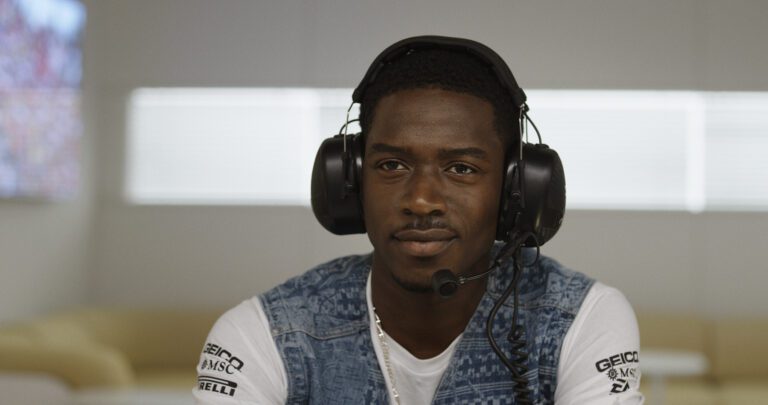Making indie films can be a pretty thankless gig. There’s never enough money, and so many stars who started in the smaller movies won’t go back to make them again once they’ve graduated to the big time.
That being said, the indie world is where Justin Nesbitt has successfully planted his flag, and not just as a casting director. Nesbitt often produces the films on which he works and is an executive at Al Bravo Films as well, where he oversees all casting for the company’s productions. He also does a little acting, too, giving him one more tool in his belt of versatility, and making him that much more valuable to the people who hire him.
His newest film, 72 Hours, starring Cam Gigandet and Sam Trammell, released on November 1. He talked to us from Las Vegas, right before heading home to Newport Beach.
Insights: Lessons from Justin Nesbitt
- Justin Nesbitt’s career demonstrates the value of versatility. Actors should consider learning various aspects of filmmaking, including casting and producing, as it can increase their value and provide more opportunities within the industry.
- Actors are encouraged to trust their instincts and commit to their interpretation of the character during auditions. There is no need to ask if they should perform it differently unless prompted. A confident and distinct choice can make an actor stand out.
- Actors should ensure their reel starts with their best work and showcases a range of their capabilities. Additionally, actors should communicate any special talents or circumstances (like living part-time in a different location or having stunt training) that might make them more attractive for certain roles.
- Like Nesbitt, actors should be open to saying “yes” to opportunities, even if they are unexpected or outside their initial goals. Building a network and taking on various roles can lead to new and unexpected opportunities in the industry.
- Actors can benefit from understanding the casting perspective. Knowing how decisions are made can help them become better performers and navigate the industry more effectively. Being proactive in learning about the business side of filmmaking can be as important as honing acting skills.
How did you get into casting in the first place?
How I got the business is in Florida. I landed this small role in the movie Monster with Charlize Theron. I caught the film bug on set.
The next step everybody told me was to move to LA. So, I moved to LA and started meeting people. I ended up working for this management company, running the guy’s office, and one of my jobs was to bring in agents, managers, casting directors for mini showcases, people that could hire their talent. I was talking to the agents and convincing them to come in and look at the actors and all that stuff.
I was 20 or so, and after the boss and I decided I should mostly work at home because we butted heads a lot, I got a call to meet these guys who worked with a writer named Ronald Shusett, who did Alien and Minority Report. He owns the Philip K. Dick novel series, and they wanted to start an independent film company. They’d heard I was good at running the office, so I ended up doing that [for them].
We had an office there at the CNN building, and this director kept coming in. He was doing a short film and asked if he could use the office space to cast. I said, “Sure,” and he asked me to help him out. He ended up giving me a co-producer credit and a casting credit. I didn’t even know what it meant, but that’s how I got into the business.
That was it? Just a short and you were in?
It went to a festival, and the owner of the production company liked the short and they made it a feature script called Hotel California, and they said, “You’re going to cast it.” I said, “What? I didn’t come to Hollywood to be in casting. I’m an actor.”
I’m interested in how films are made, but I was interested in the other side of the table. When you go to auditions, there’s these people on the other side of the table with the camera, and they’re making decisions. I was always interested in how they make those decisions. What’s the thought process in that?
I helped him cast that first film, and the executive producer liked what I did, so he hired me on his next four films, and just said, “You’re going to run the casting department,” and that was it. I would speak on panels with other big casting directors, and I was 21 years old, like, “What am I doing here?”
It sounds like you kind of got into casting because people told you to.
You don’t say no. Say yes and then figure it out. I did like acting, but I thought, “If I could figure out how they make decisions, maybe I’ll be a better actor. Maybe I’ll be more direct.” It was like being paid to go to school.
The in-house attorney taught me how to do deals, negotiate, and do after-contracts. They liked the work I was doing, and good work begets work. Now I mostly cast on my cell phone, to the point where I just call actors or agents directly. It’s 20 years of contact.
You mentioned thinking that you hoped it would help your acting. Has it worked out that way?
Yeah, but it became a lot of work, climbing to the position I did and getting the credits I did. I was going to scene study class at the time, and I was just like, “I can’t do this anymore. I have an office. I have assistants. I have to run a casting department. I can’t do both.” I just said, “I’m going to take a break and just learn filmmaking.” Now I have over 40 producer credits, and it’s all through casting. I learned budgets, I worked in the AD department and rarely is there a film I produced that I didn’t cast.
Do you consider yourself a casting director who acts, or an actor who does casting?
I’m just a guy that wears multiple hats. I have a hat and just flip it around. Who am I today? I’m an actor today. Okay, I’ll hit my marks in my life. Oh, the casting director, I put that brain on, you know? I could do it all.
I was called last minute for a movie, they were supposed to get Fat Joe, but he went on tour with Beyonce. The director happened to know me, and since I was already here, they cast me, and I got to do cool scenes with Harvey Keitel, who I had put in the movie. Then I got to improv with him and do a bunch of scenes together.
To answer your question, I put a link to my reel in my professional email. A lot of directors I cast with over the years are like, “Hey, we didn’t know you acted.” I don’t like to push myself on people, but if they happen to see it in my signature, cool. You never know.
Working for a couple of different companies as the head of casting, I would imagine the security is nice, having a set gig like that.
What’s good about it is, when we negotiated it, it was non-exclusive. That’s the other thing with casting and producing, you partner with talented directors that you know are good for more than just a one-off film.
Mario van Peebles is one of them. He’ll summon you to his house and then he doesn’t ask. He’s not like, “Hey, do you want to do this?” Once you go to the house, it’s like you’re already making the film.
It sounds like this is a pattern, where you hook up with these people who say, “Alright, Justin, this is what we’re doing.”
It’s low-budget filmmaking. We’re kind of the gatekeepers to the industry, meaning, actors come to my office, they need those credits to get to a big series and to get to the big films.
A lot of people I cast over the years, I’ll see on a billboard. They came to me. I booked them. They got credits. They got footage for the reel. I always say good for them.
With so many people that you see. Do you find that there are common mistakes that actors make when they come in for auditions?
Back in the rooms, they’d always say, “Would you like me to do it differently?” Or, “Would you like to see it another way?” I tell actors, “Just go do it. Make your choice. If it’s your choice, there’s no bad choice. If it’s good enough and they like it, we’ll adjust. But if not, you get out of the room.”
Sometimes, they just linger, waiting for compliments or feedback. Sometimes you don’t have it right then, you gotta talk to your director privately and see if they like you. We’re not shy as casting officers. When we want you, you’re going to get a phone call. Your reps are going to get phone calls. So just go kill it and get out of the room. If they want to see something else, they’ll stop you.
With that in mind, what piece of wisdom or advice would you give to an actor coming in to audition for you?
Go with your gut instincts on the performance, on who you think that character is and don’t be afraid to do something different that’s maybe not always on the page, because that stands out.
I’m also a big fan of strong reels, and to put your best stuff in the beginning of the reel. And tell us if you have a special talent. “I’m trained in stunts too.” Or, “I happen to live part-time in Georgia. I’m good on horseback or whatever.” Anything that makes you more hirable.
Ready to find your next role with Casting Networks? Sign up for a free trial today!
You may also like:













